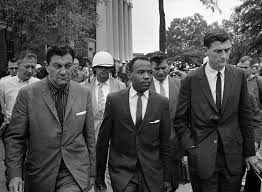
Introduction to the Insurrection Act
The Insurrection Act is a critical piece of legislation in the United States, allowing the President to deploy federal troops during instances of civil unrest or rebellion. The act has been invoked in various historical contexts, most notably during periods of significant civil disorder. Given current socio-political tensions in the country, understanding the implications and relevance of the Insurrection Act is more important than ever.
Historical Background of the Insurrection Act
First passed in 1807, the Insurrection Act was designed to enable a swift federal response to insurrections and lawlessness. Amendments to the act over the years have clarified the conditions under which the President can intervene, specifically allowing for military action to enforce federal laws. This legislative tool has historically been used during crises, such as the desegregation of schools in the South in the 1960s and the riots following the assassination of Martin Luther King Jr.
Recent Developments and Implications
In light of recent protests and civil unrest across the United States, discussions regarding the Insurrection Act have resurfaced. The events of 2020 highlighted the potential for its use and the complex legal and ethical questions surrounding it. For example, during the protests following the murder of George Floyd, former President Donald Trump considered invoking the Insurrection Act, raising concerns about the militarization of police and civil liberties. The potential misuse of this act has ignited debates about the balance of power between federal and state authorities in addressing civil disturbances.
Conclusion: The Significance of the Insurrection Act Today
The Insurrection Act remains a vital, albeit contentious, component of the federal government’s toolkit for maintaining order during civil strife. Its relevance has only grown as the nation grapples with polarized viewpoints and social unrest. The act’s potential application raises important questions about governance, civil rights, and the role of the federal government in policing dissent. As we look to the future, ongoing discussions about the Insurrection Act will likely continue to shape the legal landscapes of civil rights and public safety in the United States.



